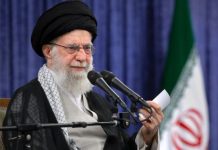Dr. Muhammad Akram Zaheer
As the United States ascended to the status of a leading global power in the early twentieth century, its foreign policy was characterized by a significant tension between two predominant theoretical frameworks.These was necessity of projecting military power abroad to safeguard the nation’s expanding interests and the belief that an isolationist approach, encapsulated by the “America First” doctrine, would more effectively preserve peace. However, it was only with the advent of the Cold War that the notion of national security became deeply embedded in the American political discourse.The enactment of the National Security Act of 1947, which included provisions for the establishment of the Central Intelligence Agency and the National Security Council, constituted a foundational element of the security architecture that remains in place today. The identification of the Soviet Union as a formidable adversary catalyzed the creation of numerous research centers, think tanks and academic programs focused on the study of national security.Wolfers astutely observed that when terms such as national security achieve widespread usage, they might not convey the same meaning to all individuals. He further noted that such terms might not have any precise meaning at all. During the 1950s and early 1960s, a consensus regarding the Soviet threat somewhat alleviated these concerns. However, by the time of the Vietnam War, Secretary of Defense Robert McNamara warned the public that U.S. officials had become lost in a semantic jungle concerning national security, often conflating it with narrowly defined military issues, such as weapons procurement.
The Cold War and the subsequent dissolution of the Soviet Union might have led one to expect a contraction in the scope of national security concerns, accompanied by a reduction in military expenditure. However, the reverse has occurred. The historical trajectory of the National Security Strategy, which mandates the president to deliver an annual report on current threats to Congress though such reports are often released with less frequency—exemplifies a persistent expansion of concerns encompassing energy security, nuclear proliferation, drug trafficking and terrorism, among others. The events of September 11, 2001, further accelerated this trend, as politicians and policymakers increasingly emphasized national security while broadening the spectrum of issues purportedly affecting it. For instance, pandemic prevention emerged as a national security concern in the early 2000s and has continued to be regarded as such.
In the past decade, the rise of China, alongside Russia’s revanchist ambitions, has led both the Trump and Biden administrations to underscore great-power competition in their National Security Strategy documents. While the inclusion of these emergent threats was justified, prior concerns were not deprioritized. The 2017 strategy, for example, included a commitment to devote greater resources to dismantle transnational criminal organizations, while the 2022 document posited that global food security demands constant vigilance and action by all governments, asserting that the United States would engage across entire food systems to consider every step from cultivation to consumption.This pattern is similarly reflected in the State of the Union addresses delivered by U.S. presidents. Since the Cold War’s conclusion, presidents have routinely employed this annual speech to identify new threats to the United States or to expand the scope of existing threats. Initially, terrorism, nuclear proliferation and rogue states were central concerns; however, over time, issues such as climate change and cybersecurity have been integrated into the discourse. Even when presidents acknowledged that U.S. national security was relatively robust, they consistently sought to convey a sense of urgency to the American public. For example, in 1997, President Bill Clinton remarked, “We face no imminent threat, but we do have an enemy. The enemy of our time is inaction”. Following the attacks of September 11, presidents and their security advisors characterized the nation as besieged by various threats. Philip Zelikow, a key architect of President George W. Bush’s 2002 national security strategy, articulated “the frontiers of national security can be everywhere” and noted that “the division of security policy into domestic and foreign compartments is breaking down”.
In recent years, the definition of national security has broadened even further. Issues that former UN Secretary-General Kofi Annan termed problems without passportssuch as cybersecurity and climate change have proliferated. Advances in technology have prompted foreign policy experts to examine novel areas of concern. While military forces historically focused on threats from land, sea and air, contemporary challenges in this century have introduced cyberspace and outer space as complex arenas of conflict. Technologies such as artificial intelligence and quantum computing have become pivotal, thereby transforming them into national security priorities. The list of critical minerals continues to expand, driven by climate change and the global transition away from fossil fuels, resulting in an insatiable demand for rare-earth metals essential for batteries and other clean energy applications.Subsequent U.S. administrations have also incorporated domestic threats into the national security agenda. Domestic extremism was first acknowledged in the National Security Strategy in 2010. The Trump administration declared a national emergency at the southern border, citing the increasing influx of narcotics, criminal gangs and migrants as threats. Similarly, the Biden administration has declared national emergencies related to critical supply chains, such as cobalt, aiming to near-shore essential production technologies. While each of these concerns can be plausibly identified as a national security priority in isolation, the relentless accumulation of such paramount concerns by the executive branch has rendered the concept of national security increasingly ambiguous.

















